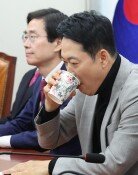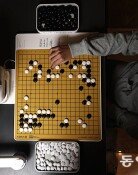[Editorial] Reform of Officialdom Based on Stability and Continuity
[Editorial] Reform of Officialdom Based on Stability and Continuity
Posted February. 09, 2003 22:32,
The new government seems to be rolling up their sleeves to reform the officialdom. A sweep is expected as President-elect Roh Moo-hyun has decided to appoint heads of civic groups as presidential secretary for civil affairs and aide for personnel matters. As Mr. Roh seems to put more emphasis on reform than on stability, the pace of change in the line-up of officialdom is likely to accelerate.
However, it should be kept in mind that successive governments of South Korea have stressed reform of the public servants society around inauguration. In other words, they have failed in the reform. The process was also almost the same. A new force that has come to power tries to reform the officialdom at a stroke. But a while later, its enthusiasm is tamed faced with the high walls of the officialdom.
A case in point is a plan to open the appointments of senior government workers, which the incumbent government pushed ahead with in order to introduce competition into the officialdom. However, the initiative fizzled out. The plan that Mr. Roh has in mind is in line with the current governments, so it is necessary to take a close look at what was the cause of the current governments failure.
The deep-rooted notion in the officialdom that however reform-minded a new minister is he does an about-face only into one month of office represents the difference between theory and reality. The notion is making a mockery of the reform efforts of successive governments, who have repeated trial and error and have given up after taking a few steps toward reform. MR. Rohs plan to put a lot of new figures from civic groups in the government seems intended to eradicate exclusionist attitudes within the government workers society. But he also should pay attention to a few points.
First, appointing fresh figures a lot is nothing but shock therapy. If Mr. Roh fails to induce reform from below, he cannot but face a limit. Second, there is a possibility that a new power group comes into being within the officialdom. If so, the existence of the new group might be viewed as Rohs efforts to put more "his people" in the government, and it will cause conflicts in it. Most of all, MR. Roh should be precautious against a mess in national management from appointing outside figures without experience. In national administration stability and continuity is no less important than reform.
cclim@donga.com





![[오늘의 운세/2월 27일]](https://dimg.donga.com/c/138/175/90/1/wps/NEWS/IMAGE/2026/02/26/133425477.1.jpg)
![[사설]계엄 때보다 낮은 지지율 17%… 국힘의 존재 이유를 묻는 민심](https://dimg.donga.com/c/138/175/90/1/wps/NEWS/IMAGE/2026/02/26/133433702.1.jpg)
